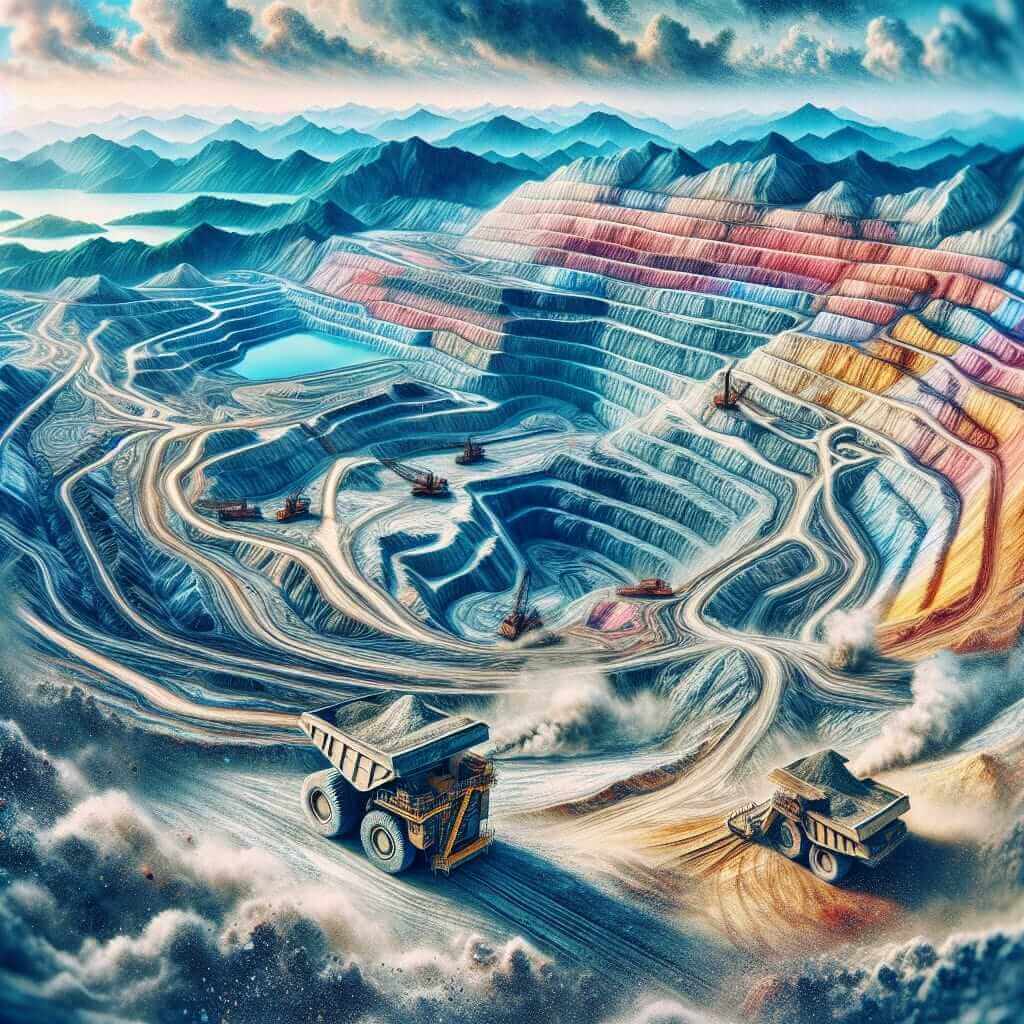The critical role of rare earth elements in modern technology is an increasingly relevant topic in the IELTS exam, often appearing in Task 2 Writing. This essay will explore this topic, analyze a sample question, provide a band 8 model answer, and offer useful vocabulary and tips for approaching this essay type.
Here are some potential IELTS Writing Task 2 questions related to this topic:
- Some argue that the increasing demand for rare earth elements, crucial for modern technologies, poses significant environmental and geopolitical risks. To what extent do you agree or disagree?
- The development of modern technology is heavily reliant on rare earth elements. What are the challenges and solutions associated with this dependency?
- Discuss the importance of finding alternative materials to reduce our reliance on rare earth elements in technological advancements.
Model Essay: The Challenges and Solutions of Rare Earth Element Dependency
Chosen Question: The development of modern technology is heavily reliant on rare earth elements. What are the challenges and solutions associated with this dependency?
Analysis of the Question:
This question requires us to discuss both the challenges and solutions related to our dependence on rare earth elements for technological advancements. It is crucial to address both aspects of the question equally to provide a well-balanced response.
Model Answer:
The rapid evolution of technology has brought about an unprecedented reliance on rare earth elements, which are essential components in countless modern devices. While this dependency has facilitated technological breakthroughs, it also presents significant challenges that demand comprehensive solutions.
One major challenge is the environmental impact associated with the mining and processing of these elements. The extraction process often involves toxic chemicals and generates substantial waste, leading to soil and water contamination. Moreover, the uneven distribution of rare earth deposits globally creates geopolitical tensions and resource nationalism, as some countries possess a near-monopoly on their production. This can lead to price volatility and supply chain disruptions, hindering technological development in nations lacking readily available resources.

Addressing these challenges requires a multifaceted approach. Firstly, promoting sustainable mining practices and investing in cleaner extraction technologies is paramount to mitigating the environmental damage. Governments and corporations must work together to enforce stricter regulations and encourage the development of eco-friendly alternatives. Secondly, diversification of supply chains is crucial to reduce reliance on a single source. This can be achieved by exploring new mining locations, fostering international collaboration, and investing in research to develop synthetic substitutes for rare earth elements.
Furthermore, promoting resource efficiency and recycling plays a vital role in reducing the demand for virgin materials. Implementing policies that encourage manufacturers to design products for durability, repairability, and recyclability can significantly extend the lifespan of these resources. Additionally, investing in research and development of alternative materials with similar properties can lessen our dependence on rare earth elements in the long run.
In conclusion, while the dependency on rare earth elements for modern technology presents substantial environmental and geopolitical challenges, adopting sustainable practices, diversifying supply chains, and fostering innovation can pave the way for a more secure and sustainable technological future.
Word Count: 298
Writing Tips:
- Structure: Ensure a clear structure with an introduction, body paragraphs addressing challenges and solutions separately, and a concise conclusion.
- Vocabulary: Utilize a wide range of vocabulary related to technology, resources, and sustainability. Avoid repetition by using synonyms.
- Grammar: Use a variety of complex sentence structures and grammatical structures accurately. Pay attention to subject-verb agreement and article usage.
- Relevance: Stay focused on the topic and ensure all information provided directly addresses the question asked.
- Examples: Where possible, provide specific examples to illustrate your points and demonstrate a deeper understanding of the topic.
Useful Vocabulary:
- Rare earth elements (n.) /ˌreə(r) ˌɜːrθ ˈɛlɪmənts/: a group of 17 metallic elements
- Dependency (n.) /dɪˈpɛndənsi/: the state of relying on something
- Technological advancements (n.) /ˌtɛknəˈlɒdʒɪkəl ədˈvɑːnsmənts/: progress in technology
- Geopolitical (adj.) /ˌdʒiːoʊpəˈlɪtɪkl/: relating to the influence of geography on politics
- Resource nationalism (n.) /rɪˈsɔːrs ˈnæʃənəlɪzəm/: a policy of protecting a country’s natural resources
- Supply chain (n.) /səˈplaɪ tʃeɪn/: the sequence of processes involved in the production and distribution of a product
- Sustainable mining (n.) /səˈsteɪnəbl ˈmaɪnɪŋ/: mining practices that minimize environmental impact
- Diversification (n.) /daɪˌvɜːrsɪfɪˈkeɪʃn/: the process of increasing variety
- Resource efficiency (n.) /rɪˈsɔːrs ɪˈfɪʃənsi/: using resources in a way that minimizes waste
- Innovation (n.) /ˌɪnəˈveɪʃn/: a new method, idea, or product
Conclusion:
This essay explored the crucial role of rare earth elements in modern technology, highlighting the challenges and solutions associated with our dependence on them. Remember to practice writing essays on similar topics, expand your vocabulary, and focus on presenting well-structured and coherent arguments to achieve a high band score in your IELTS Writing Task 2.